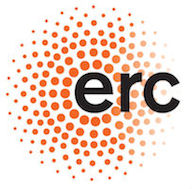“A project led by King’s College London that uses state-of-the-art magnetic resonance imaging (MRI) technologies to map brain connections in babies before and just after birth, has been featured in the Physics World Focus on Medical Imaging, published in December 2013.
In the article entitled ‘What goes on in babies’ brains’ Jon Cartwright writes about The Developing Human Connectome Project, which seeks to examine the period of most rapid change and development in the human brain, from 20 weeks, when the foetus is still in the womb, to 44 weeks, when it is a newborn baby. This development period is critical in terms of the development and presentation of neurological conditions such as autism and cerebral palsy.
Professor Jo Hajnal, Chair in Imaging Science at King’s College London, will use world-leading MRI facilities in the Evelina Children’s Hospital Neonatal Unit at St Thomas’ Hospital to map the brain connections of 1500 babies during the critical development period. Alongside the King’s College London team, researchers from Imperial College London and the University of Oxford are also collaborating on the project.
The results will offer important insights into how the brain develops and how it is affected by genetic variation or problems like preterm birth. The landmark study is described as ‘no small undertaking’, as MRI has rarely been performed on unborn babies and the potential results could have a remarkable impact on our knowledge of brain circuitry.
The project started in September 2013 and the first findings, which will be made freely available to the global research community, are expected within two years. The work has been made possible by a six-year €15m ‘Synergy grant’ from the European Research Council (ERC).”
Full article available here: http://www.kcl.ac.uk/medicine/research/divisions/imaging/newsevents/newsrecords/2013/Dec/MRI-brain-development-study-in-the-spotlight.aspx





